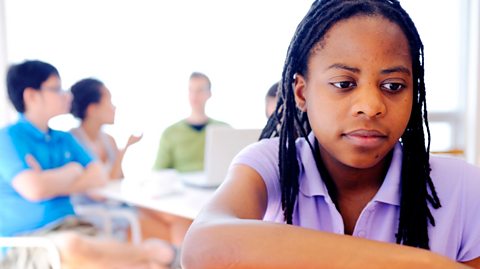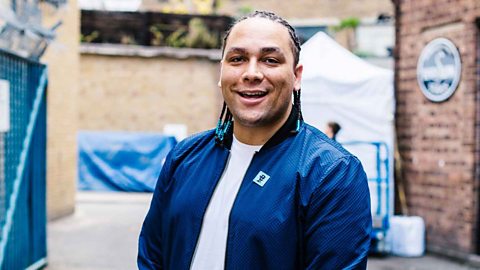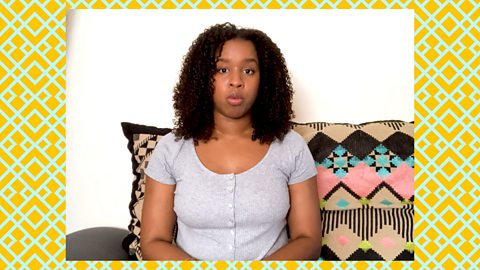This article was first published in June 2020.
John Amaechi is a psychologist, a New York Times best-selling author and a former NBA basketball player. In the wake of the George Floyd killing and the Black Lives Matter protests, and at a time when many people want to learn how they can be better allies for black people, we asked John what it means to be anti-racist.
There's a big difference between being not-racist and being anti-racist. I know it doesn't seem like it. I know that both of these things seem equally good, but they're not.
John: There's a big difference between being not-racist and being anti-racist. I know it doesn't seem like it. I know that both of these things seem equally good, but they're not. Think of an interaction. I'm afraid you've probably had one right? With somebody, maybe even somebody you respect, maybe even someone you love, who says something that's racist, does something that's racist, behaves in a way that's racist. Someone who's not-racist: they won't say or do anything in that moment. They want to not rock the boat. They don't want to be upstanding. Instead, not-racists: they tend to be bystanders. But afterwards, after the event, they'll find other people who are also not-racist and they'll talk to each other about, well, that was terrible, that thing that happened the other day. I would never say anything like that. Anti-racists are different and they come in all shapes and sizes. They come in all ages. Anti-racists are constantly looking around to say, what tools do I have available to make it clear that this is not acceptable? And this, this is what anti-racists do. It's not that they stand up at the dinner table when their uncle's a little bit racist and kick the turkey off. That's not it. But what they do is they say, I'm sorry uncle John. That's not acceptable. That's racist. Quietly and respectfully. What they do is they make sure that they never miss an opportunity to let the world know where they stand, even if they can t change everything. You're probably in a position where other people have a lot more power around you. I know how that feels. Sometimes, we sit and we look around us and we think, how can I possibly change all this? And sometimes you can't. But what you can do is make sure wherever you go, people know where you stand. They know that you're an anti-racist. You become a beacon of light that way. You become someone who makes other people want to be anti-racist too. You've got tools at your disposal. Learn. Read. And make everybody clear where you stand.
Sometimes, we sit and we look around us and we think, ‘how can I possibly change all this?’ And sometimes you can’t. But what you can do is make sure wherever you go, people know where you stand. They know that you’re an anti-racist. You become a beacon of light that way. You become someone who makes other people want to be anti-racist too. You’ve got tools at your disposal. Learn. Read. And make everybody clear where you stand.

If you need support
You should always tell someone about the things you’re worried about. You can tell a friend, parent, guardian, teacher, or another trusted adult. If you're struggling with your mental health, going to your GP can be a good place to start to find help. Your GP can let you know what support is available to you, suggest different types of treatment and offer regular check-ups to see how you’re doing.
If you’re in need of in-the-moment support you can contact Childline, where you can speak to a counsellor. Their lines are open 24 hours a day, 7 days a week.
There are more links to helpful organisations on BBC Action Line.
It's important that you keep yourself safe when confronting racism. For support and advice, see the articles below.

What should I do if I hear racist language?
Expert advice on challenging unacceptable words in a safe and positive way

How to deal with racist bullying at school
Alex Holmes talks about his experiences of being racially bullied in school and what you can do if you are experiencing racism.

Racism: How to protect your mental health
Kadra Abdinasir gives advice on how to protect your mental health if you've been affected by racism.
